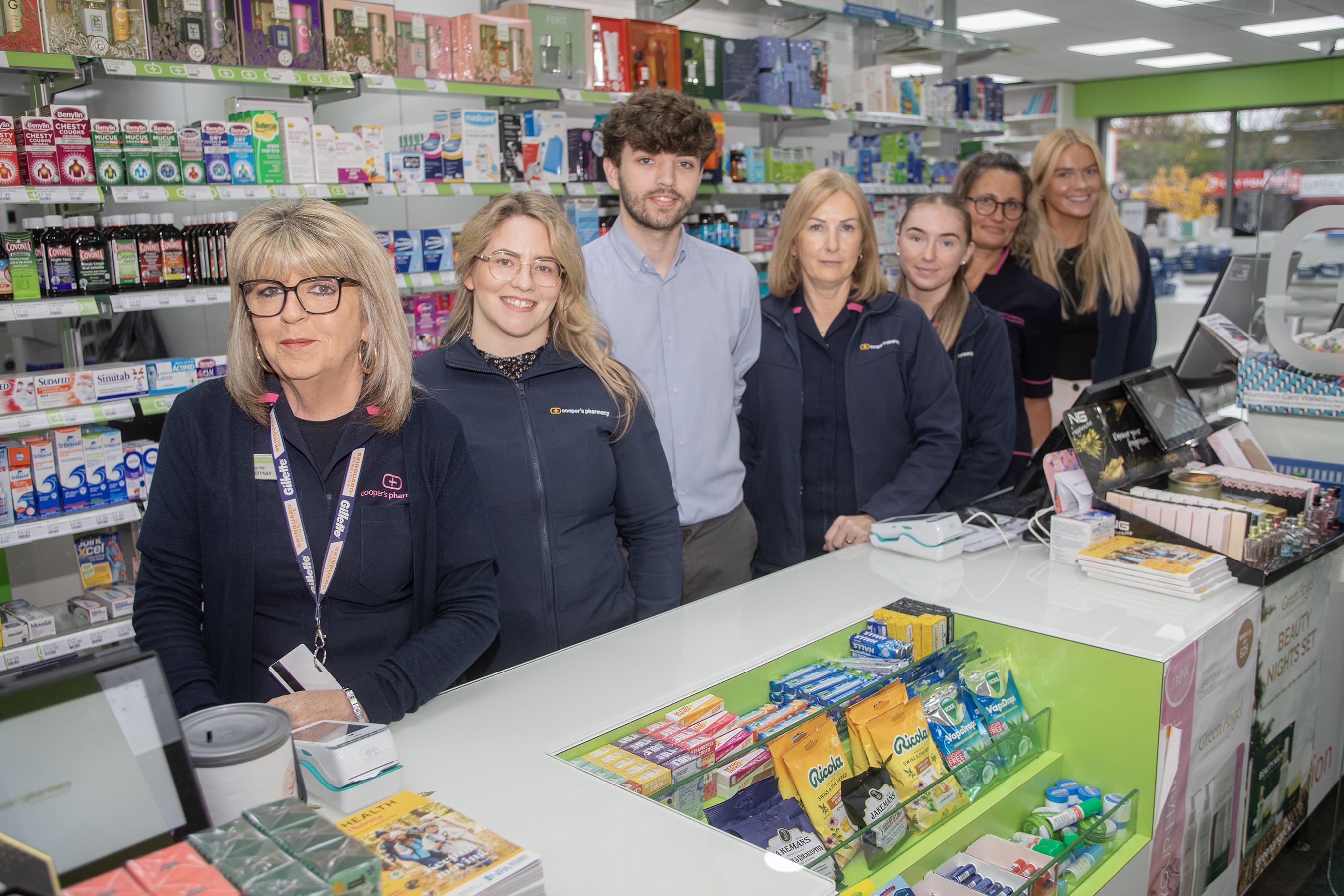THIS week pharmacies across Belfast will be hosting 'Ask Your Pharmacist Week' to encourage the public to visit their local pharmacy as a first point of contact for a range of health conditions to ease the burden on GPs and emergency departments.
Some of the points highlighted include:
- Speaking to a pharmacist allows a patient to have a quick one-to-one meeting with a highly trained health professional without waiting on a GP appointment.
- Community pharmacies can offer free, confidential clinical advice on a range of health issues from mouth ulcers, to acne, to urinary tract infections and emergency hormonal contraception.
- From December 2024 pharmacies will operate a 'Test and Treat' service for sore throats for anyone over the age of five.
- Speaking to a local pharmacist helps lower waiting times and helps GPs and emergency departments.
- No appointments are needed to speak with your pharmacist.
- Many pharmacists have longer opening times than GPs, including at weekends and over holidays and can better accommodate minor complaints.
It’s #AskYourPharmacistWeek
— Health and Social Care Northern Ireland (@HSC_NI) November 5, 2024
Did you know your Community Pharmacist is a qualified healthcare professional? They can provide advice for everyday minor ailments – for free and without an appointment.
In this video Richard explains more about the service a Pharmacist can… pic.twitter.com/cGR9Rhrgbi
This coming winter pharmacists have advised anyone suffering a minor health condition such as a cough, sore throat or ear infection to see your local pharmacist who can provide treatment without the need of an antibiotic and can provide a range of over the counter medicines to offer relief. Vaccinations such as Flu and Covid jabs are also available for those aged 65+ or who are in a vulnerable health category.
Michael Cooper of Cooper's Pharmacy on the Andersonstown Road said: “During ‘Ask Your Pharmacist Week’, we’re encouraging everyone to visit their local pharmacy first for advice on minor health concerns. For a range of health questions pharmacists can offer quick, confidential advice without the wait for a GP appointment.
"Many pharmacies also have longer hours, including weekends and holidays. Plus, starting in December 2024, we’ll be offering a ‘Test and Treat’ service for sore throats. By speaking with your pharmacist, you can get the treatment you need while helping to ease the pressure on GPs and emergency departments.”







